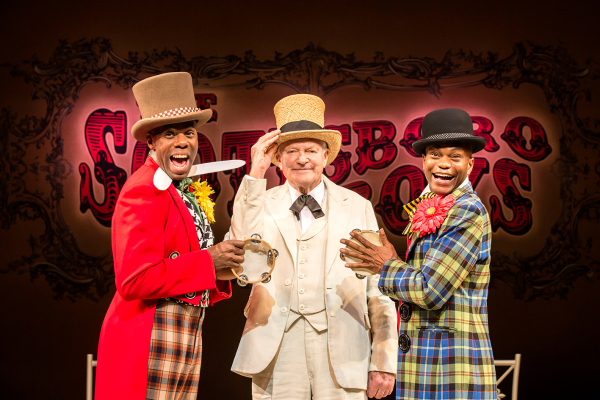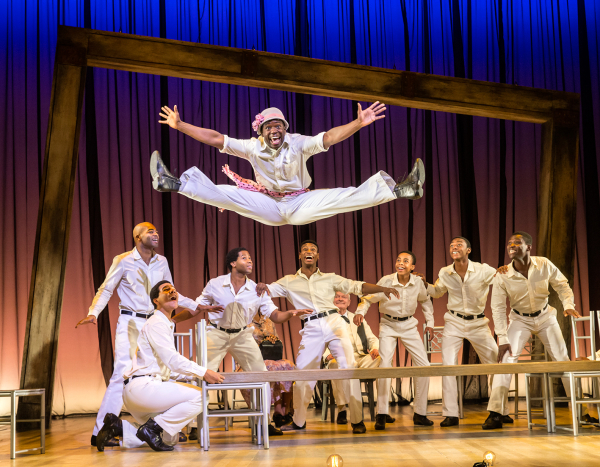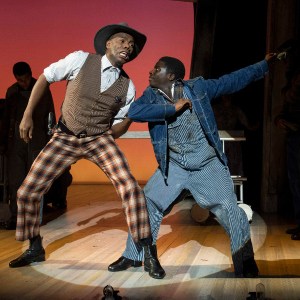The Scottsboro Boys (Garrick Theatre)
‘Nothing about the Scottsboro Nine’s case makes it obvious material for a musical, but then Kander and Ebb aren’t about obvious’

© Johan Persson
Rarely do form and content dance such an intimate, dangerous tango as in The Scottsboro Boys. Or perhaps that should be a tap dance. Kander and Ebb's musical, fresh in the West End after a run at the Young Vic last year, finds the rawest, most provocative structure for telling its true story of racial prejudice and injustice: the minstrel show.
In Susan Stroman's production, this unsavoury relic of racial bigotry in the United States is turned strikingly on its head. In answer to the black stereotypes perpetuated by minstrelsy, the black cast – with the exception of the white Interlocutor – juggle a series of white caricatures as they recreate the circus of a legal system at the show's centre. There's no question about who is being ridiculed here.
The trials in question are those of nine young black men, hauled off a freight train in the Deep South in 1931 and falsely charged with the rape of two white women. Tried before white juries in Scottsboro, Alabama, they were found repeatedly guilty, even after one of the women changed her testimony. The Scottsboro Boys traces this series of blunders and abuses, painting a damning picture of deeply ingrained racial prejudice. As one local law enforcer puts it, "round here, when it comes to justice, it's just us".

Nothing about the Scottsboro Nine's case makes it obvious material for a musical, but then Kander and Ebb aren't about obvious. At first glance, murderesses and Nazis don't seem like ideal toe-tapping candidates either, yet Chicago and Cabaret are now undisputed classics. It's easy to see The Scottsboro Boys soon inhabiting the same territory with its brilliant blend of incendiary rage, black humour and infectious tunes. That's not to mention Stroman's dazzling choreography, in which not one step is wasted.
Staged inside the lightbulb-studded frames of Beowulf Boritt's design and the additional, slanted frame of the minstrel show, Stroman's production manages to be at once fierce, bold and relentlessly entertaining. This is anger with a smile plastered on. The same fury that simmers beneath Kander and Ebb's score glints through the grimaces of the uniformly excellent cast, who inject the piece with both the energy and the ire that it demands, slamming down chairs and stamping their feet with barely suppressed rage.
At the heart of it all is the question of how the Scottsboro Nine are remembered and what they have left behind – a sense of cultural memory which this piece strives to be an important part of. Making a song and dance about it doesn't even begin to cover the endeavour. And here is where the show's final frame comes in, positioning the Scottsboro Boys in the history of the Civil Rights Movement. When at last we see the silent, watchful figure who has lurked in the background throughout take her place centre stage, determinedly sat at the front of her bus and claiming her stake in history, that anger has an answer.













